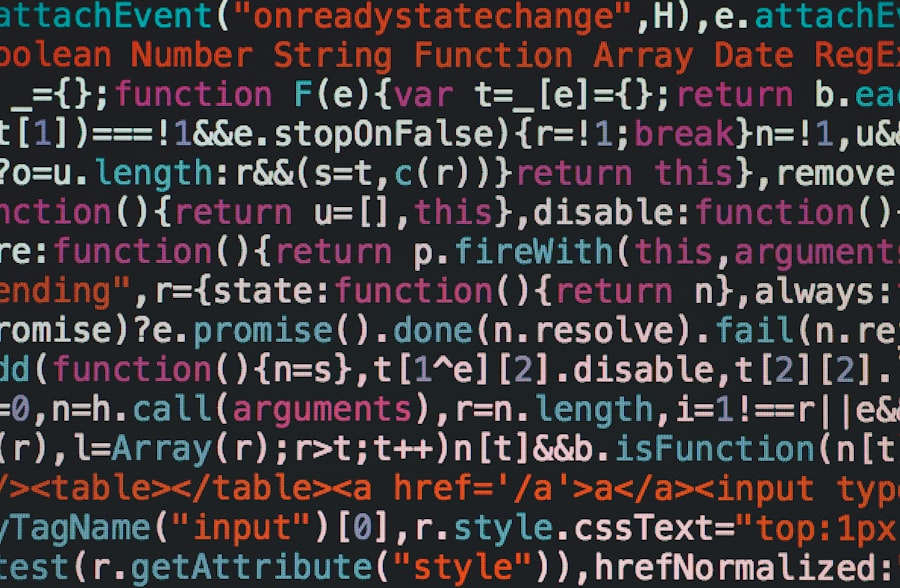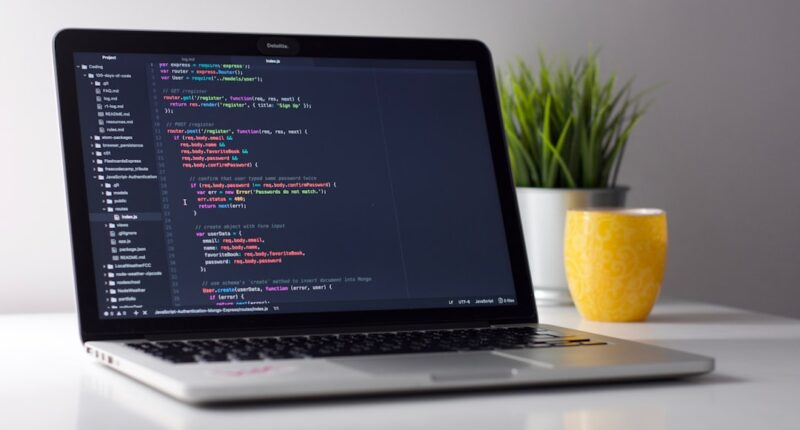NFTs, or non-fungible tokens, have been making headlines in the digital world, but what exactly are they? NFTs are unique digital assets that are stored on a blockchain, which is a decentralized and distributed ledger technology. Unlike cryptocurrencies such as Bitcoin or Ethereum, which are fungible and can be exchanged on a one-to-one basis, NFTs are one-of-a-kind and cannot be exchanged on a like-for-like basis. This uniqueness is what gives NFTs their value and has led to a surge in interest and investment in the NFT market.
Blockchain technology is the underlying infrastructure that enables NFTs to exist. It is a secure and transparent digital ledger that records transactions across a network of computers. Each transaction is recorded in a block, which is then linked to the previous block, creating a chain of blocks – hence the name “blockchain.” This technology provides a tamper-proof and decentralized system for recording and verifying transactions, making it ideal for NFTs, as it ensures the authenticity and ownership of digital assets. Understanding the fundamentals of blockchain technology is crucial for anyone looking to enter the world of NFTs, as it forms the backbone of the entire ecosystem.
Key Takeaways
- NFTs are unique digital assets stored on a blockchain, providing proof of ownership and authenticity.
- Learning programming languages like Solidity and tools like Remix can help in creating and deploying smart contracts.
- Smart contracts are self-executing contracts with the terms of the agreement directly written into code, enabling trustless transactions.
- Gaining experience with DApps can involve building, testing, and deploying applications on decentralized networks like Ethereum.
- Understanding security best practices is crucial for protecting digital assets and ensuring safe transactions in the blockchain space.
- Networking and building a portfolio of projects can help in establishing credibility and finding opportunities in the blockchain industry.
- Continuing education and staying updated with industry trends is essential for keeping up with the rapidly evolving blockchain technology landscape.
Learning Programming Languages and Tools
To fully grasp the intricacies of NFTs and blockchain technology, it is essential to have a solid understanding of programming languages and tools commonly used in this space. Languages such as Solidity, which is used for writing smart contracts on the Ethereum blockchain, and Rust, which is used for programming on the Polkadot blockchain, are highly sought after skills in the NFT and blockchain industry. Additionally, familiarity with web development languages such as JavaScript, HTML, and CSS can be beneficial for building user interfaces for decentralized applications (DApps) that interact with NFTs.
In addition to programming languages, tools such as Truffle Suite, Remix, and Ganache are commonly used for developing, testing, and deploying smart contracts on various blockchain platforms. These tools provide developers with the necessary infrastructure to create and manage NFTs and other digital assets on the blockchain. By mastering these programming languages and tools, individuals can position themselves as valuable assets in the NFT and blockchain space, with the ability to contribute to the development and innovation of this rapidly evolving industry.
Familiarizing Yourself with Smart Contracts
Smart contracts are self-executing contracts with the terms of the agreement directly written into code. These contracts run on the blockchain and automatically enforce the terms of the agreement when certain conditions are met. In the context of NFTs, smart contracts play a crucial role in defining the ownership, transfer, and royalties associated with digital assets. Understanding how smart contracts work and being able to write them is essential for anyone looking to work with NFTs.
Solidity is the most widely used programming language for writing smart contracts on the Ethereum blockchain, making it a valuable skill for anyone interested in NFTs. By familiarizing yourself with Solidity and smart contract development, you can gain a deeper understanding of how NFTs are created, bought, sold, and transferred on the blockchain. This knowledge can open up opportunities to work as a smart contract developer or consultant in the NFT space, where you can contribute to the creation of innovative and secure smart contracts for digital assets.
Gaining Experience with Decentralized Applications (DApps)
Decentralized applications, or DApps, are applications that run on a decentralized network of computers, typically using blockchain technology. These applications are designed to be open source, transparent, and resistant to censorship and downtime. In the context of NFTs, DApps provide platforms for users to buy, sell, and interact with digital assets in a decentralized manner. Gaining experience with DApp development can provide valuable insights into how NFT marketplaces and platforms operate.
By learning how to build DApps that integrate with NFTs, individuals can gain hands-on experience with creating user interfaces, interacting with smart contracts, and managing digital assets on the blockchain. This experience can be invaluable for anyone looking to work in the NFT space, as it demonstrates a practical understanding of how NFT marketplaces and platforms function. Additionally, contributing to open-source DApp projects can help individuals build a portfolio of work that showcases their skills and expertise in developing decentralized applications for NFTs.
Understanding Security and Best Practices
Security is a critical consideration when working with NFTs and blockchain technology. The decentralized nature of blockchain networks means that once a transaction is recorded on the blockchain, it cannot be altered or deleted. This immutability makes security paramount when dealing with digital assets such as NFTs. Understanding best practices for securing smart contracts, managing private keys, and protecting against common vulnerabilities such as reentrancy attacks is essential for anyone working with NFTs.
By familiarizing yourself with security best practices and staying updated on the latest developments in blockchain security, you can help ensure the integrity and safety of digital assets on the blockchain. This knowledge can be applied to developing secure smart contracts, auditing existing contracts for vulnerabilities, and advising on best practices for managing NFTs. Additionally, obtaining certifications in blockchain security or participating in bug bounty programs can demonstrate your commitment to maintaining high standards of security in the NFT space.
Networking and Building a Portfolio

Networking within the NFT and blockchain community can provide valuable opportunities for collaboration, mentorship, and career advancement. Engaging with industry professionals through online forums, social media groups, and local meetups can help you stay updated on industry trends, learn from experienced professionals, and build connections that may lead to job opportunities or partnerships. Additionally, contributing to open-source projects or participating in hackathons can help you showcase your skills and build a portfolio of work that demonstrates your expertise in NFTs and blockchain technology.
Building a strong portfolio that showcases your projects, contributions to open-source initiatives, and any certifications or awards you have obtained can help you stand out to potential employers or clients in the NFT space. By highlighting your practical experience with developing DApps, writing smart contracts, and implementing security best practices, you can demonstrate your ability to contribute meaningfully to the NFT ecosystem. Networking and building a portfolio go hand in hand in establishing yourself as a reputable professional in the NFT and blockchain industry.
Continuing Education and Staying Updated with Industry Trends
The NFT and blockchain industry is constantly evolving, with new technologies, standards, and best practices emerging regularly. Staying updated with industry trends through online courses, webinars, conferences, and industry publications is essential for anyone looking to build a career in this space. Continuing education through specialized courses in NFT development, blockchain security, or smart contract auditing can help you deepen your knowledge and stay ahead of the curve in this rapidly changing industry.
In addition to formal education, staying engaged with industry communities through social media platforms such as Twitter or LinkedIn can provide real-time insights into emerging trends and opportunities in the NFT space. Following thought leaders, participating in discussions, and sharing your own insights can help you establish yourself as an active member of the community while staying informed about the latest developments. By prioritizing continuing education and staying updated with industry trends, you can position yourself as a knowledgeable and adaptable professional in the dynamic world of NFTs and blockchain technology.
In conclusion, entering the world of NFTs requires a multifaceted approach that encompasses technical skills, security awareness, networking efforts, and ongoing education. By understanding the fundamentals of blockchain technology, learning programming languages and tools relevant to NFT development, familiarizing yourself with smart contracts, gaining experience with DApps, understanding security best practices, networking within the industry, building a strong portfolio, and staying updated with industry trends, you can position yourself for success in this exciting and rapidly growing field. With dedication and a commitment to continuous learning and improvement, you can carve out a rewarding career in the world of NFTs and blockchain technology.
If you’re interested in becoming an NFT back-end developer, you’ll want to check out this insightful article on NFT-Jobs.com. The article “Hello World” provides a great introduction to the world of NFT development and offers valuable tips for aspiring developers. You can read the full article here. This resource is a must-read for anyone looking to break into the exciting and rapidly growing field of NFT technology.
FAQs
What is an NFT Back-End Developer?
An NFT back-end developer is a professional who specializes in creating and maintaining the server-side logic and infrastructure for NFT (non-fungible token) platforms and applications.
What are the responsibilities of an NFT Back-End Developer?
The responsibilities of an NFT back-end developer include designing and developing the server-side architecture, implementing security measures, integrating with blockchain networks, optimizing performance, and collaborating with front-end developers and other team members.
What skills are required to become an NFT Back-End Developer?
To become an NFT back-end developer, one needs to have a strong understanding of blockchain technology, proficiency in programming languages such as JavaScript, Python, or Solidity, knowledge of server-side frameworks and databases, and experience with cloud platforms and DevOps practices.
What are the steps to become an NFT Back-End Developer?
To become an NFT back-end developer, one can start by gaining a solid understanding of blockchain technology and its applications, learning programming languages and server-side development, gaining experience with blockchain platforms and tools, and building a portfolio of NFT-related projects.
What are the career prospects for NFT Back-End Developers?
The demand for NFT back-end developers is expected to grow as the NFT market continues to expand. NFT back-end developers can find opportunities in blockchain companies, NFT marketplaces, digital art platforms, and other organizations working with non-fungible tokens.





